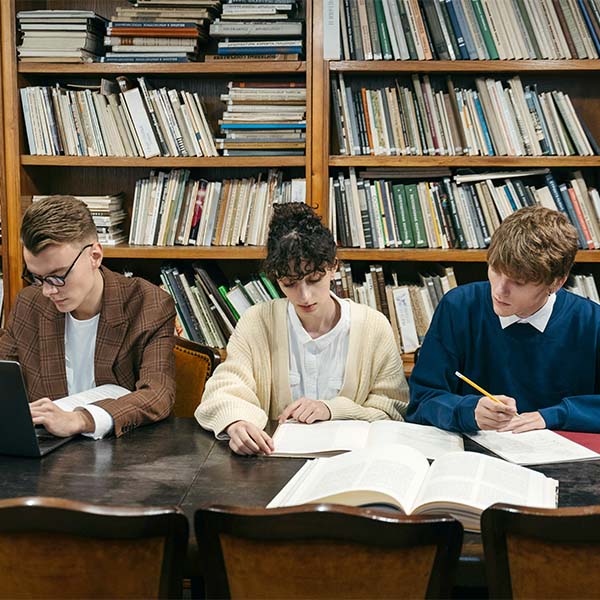What is the best way to get students to do Retrieval Practice? Is it through Cold-Calling, mini whiteboards or Think, Pair, Share? We explored the pros and cons of each of these in a previous blog, but really wanted to dig into the research on this. Here is what we found…
What does the research say?
Surprisingly, there isn’t as much research on things like mini whiteboards as you might expect (especially as it wouldn’t be the hardest research design to come up with). So instead, we have to look at the next best thing and then make some educated guesses/leaps of faiths.
In the research, this typically means looking at comparing overt Retrieval Practice with covert Retrieval Practice.
- Overt Retrieval refers to the process whereby individuals actively recall and articulate information from their memory through observable actions. This includes verbalising answers or writing responses.
- Covert Retrieval is a cognitive process in which individuals recall information from their memory without demonstrating this process through observable actions. It occurs internally and silently.
Let’s look at four different studies to see what they found…
1. Overt vs Covert retrieval: Word recall
The first fascinating study conducted a series of experiments which help us to understand which Retrieval Practice strategy is most effective. The first two experiments involved participants attempting to remember 90 words, either overtly by typing them, or covertly by thinking of them. Overt and covert retrieval were found to be equally effective.
The researchers suggest they are similar in effectiveness because they both bring a previous experience to mind, which they suggest is the mechanism by which Retrieval Practices benefit memory. The findings from the study seem promising.
However, we must keep in mind that the tasks only required participants to remember individual words and pairs of words, not chunks of information. So, as pointed out by the authors, overt and covert retrieval are just as effective as each other “at least with the materials and procedures used here”.
2. More information, more overt retrieval needed?
To find out about how overt and covert Retrieval Practice compare when the amount of information participants are asked to remember is larger than a couple of words, we can turn our eyes to an interesting study conducted in 2018 which is comprised of two experiments. The first experiment focused on the recall of definitions of key terms in two psychology topics. The results provided support that overt retrieval enhances retention more than covert retrieval.
The researchers suggested that students may use their familiarity with certain key terms to avoid fully retrieving during covert Retrieval Practice, mistakenly believing that those terms are already well-learned. This reflects a metacognitive illusion that can hinder effective learning. This leads students to believe they know the answer without actually providing the complete answer, which results in a lesser benefit to learning. As explained by the authors, “students’ learning of large units of information is enhanced more by overt than covert Retrieval Practice.”
3. Articulation and memorisation
Researchers at Stockholm University found that all participants in their study who practised some form of retrieval, whether covert or overt, remembered the word pairs better than those who only studied them. Interestingly, it didn't matter whether they thought of the words in their head or said/wrote them out: the increase in memory was the same.
They researchers concluded that “covert and overt retrieval produce testing effects of comparable magnitudes”. It seems that any differences in overt and covert retrieval might be due to factors other than the retrieval process itself. The authors suggest that when and if a difference is found, “it is likely the result of specific design aspects of a particular experiment, rather than an actual difference in efficacy of covert vs. overt retrieval”. It's a complex area, but one thing is clear: testing, in either form, can help to improve memory.
4. Cold-Calling and covert retrieval – The perfect pair?
A recent paper by Sumeracki and Castillo can provide us with more nuance to this debate between overt and covert retrieval.
In their first experiment, they found that participants who took part in the covert retrieval condition were more confident, though the participants in the overt retrieval condition performed better. Experiment two sought to understand whether the effectiveness of covert retrieval could be improved by implementing Cold-Calling. Participants in the retrieval conditions were presented with questions during their lecture, to which they had to think of or write an answer and Cold-Calling took place. Both types of retrieval improved performance at very similar levels.
The authors infer that when the students knew that they could be Cold-Called, they were motivated to retrieve the answer more fully. So, to maximise use of time and memory, Cold-Calling with covert retrieval could be a good pair. As recommended by the authors, “if the time needed to utilize overt retrieval is not feasible, then with Cold-Calling inserting covert Retrieval Practice questions into a lecture should produce more learning than having no questions at all”.
Final thoughts
So, to summarise, for recalling small amounts of information such as individual words or word pairs, overt and covert retrieval are similar in effectiveness. However, overt retrieval may be more effective if more information needs to be remembered. When the time spent recalling the content is kept the same, the difference between the effectiveness of overt vs covert retrieval is reduced. To enhance covert retrieval, Cold-Calling can be a successful technique.







